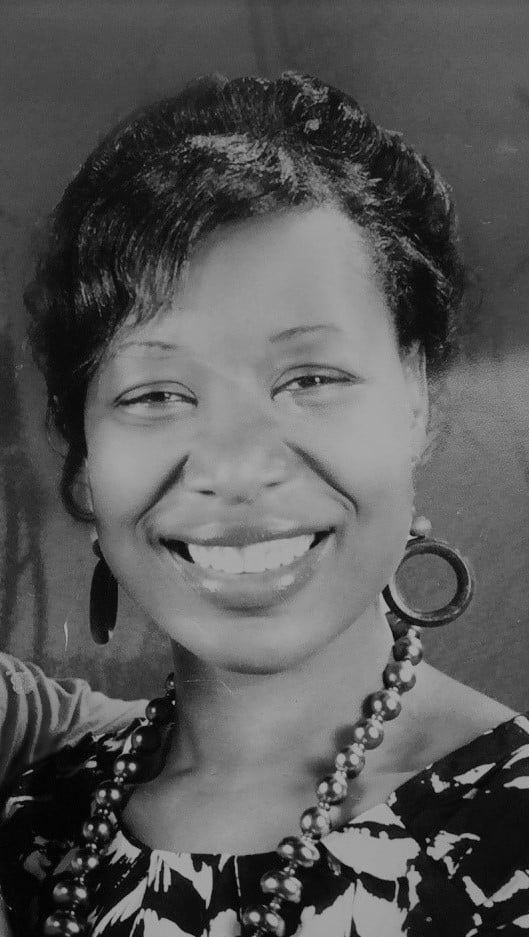As part of the Women's Day celebration in 2021, we have chosen to showcase how Sweden's support to research in Uganda has helped to increase the number of women in research. Sweden has supported women in Science in Uganda from 2000 and during the current agreement (2015-2022) a total of 146 women have received support including 19 at postdoc level, 50 at PhD level, 73 at Masters level and 4 receiving small research grants. We recently spoke to Dr. Evelyn Lutwama-Rukundo who has recently completed her post-doctoral research on Gender Studies within Ugandan Universities. Here is what she had to share with us.

What was your post-doctoral research on?
My post-doctoral research was entitled: "Mapping out a Space for Gender Studies in Ugandan University Education: The Past, Present and Future Projections". My interest was in finding out perceptions and attitudes towards the teaching and mainstreaming of gender within five public Universities in Uganda. These included: Makerere University, Kyambogo University, Mbarara University of Science and Technology, Busitema University and Gulu University.
What was the problem that you were trying to solve?
Until as late as the 1980s, gender equality was broadly misunderstood by Ugandans. Many thought that it was an overturn of men and women’s positioning in society and as a result, a discussion and planning for gender equality often met resistance. There was a critical need for massive sensitization. This was done but new generations required an early introduction to the concept and practice of gender equality. Education settings became the most ideal places to target a mindset change. Makerere University opened its Department of Women’s studies in 1991 but knowledge about the development of the discipline in Makerere University and knowledge about consideration and implementation of gender studies in other universities was limited. This study thus engaged in a detailed qualitative investigation of the state of gender studies and mainstreaming within the sampled public universities.
What are some of the key outcomes of your research?
A book chapter – ‘From the Lecture Hall to the Grassroots: Transformation of Ugandan Rural Communities by Graduates of the School of Women and Gender Studies’. This will feature in an upcoming publication by Fountain Publishers edited by Victoria Mwaka and Margareta Espling. This book will hopefully be out within this year.
A Documentary Film – ‘We’ve Got to Have it’. This is majorly a compilation of opinions and narratives of initiators, administrators and leaders who were/are involved in the development of gender academic and administrative units within the studied universities.
What next now that your post-doctoral research is finished?
I am in active teaching, researching and reaching out to communities about gender equality. These are the core requirements of my job description. The two outcomes I have cited above are very key resources in our teaching of, especially, the history of gender studies and mainstreaming in Uganda. I believe that they will additionally be resourceful to other parts of the world, especially, since the gender equality discourse sometimes faces fresh forms of resistance with some academic units in different parts of the world being closed down.
As a woman in an academic institution, what challenges are you facing?
Academia in Uganda still has a masculine face. The requirements for promotion are neutral in the sense that the same number of publications, qualifications and other expectations are required for both men and women. There is hardly any consideration for the inelastic time for women academics who struggle to balance the processes of meeting the academic requirements and the domestic ones. When women academics are successful in one dimension, they tend to be mediocre in the other. And this comes at a cost.
The above challenge is closely linked to matters of joining leadership and administrative positions by women in academia. Besides the already existing patriarchal footprint that gives male candidates an advantage over female ones. Some women in academia deliberately do not offer themselves for service in fear of the challenge of balancing the entire package of what is expected of them as an academic, administrator/leader, wife and mother.
What do you think needs to be done to get more women doing research in Uganda?
Making more diverse funding opportunities available. I know many who would want to be engaged in research but who are not successful enough to win the few grants around.
Removing age-limits from funding opportunities. Quite a number of women only manage to get involved at an advanced age. They would have spent their prime time raising a family and attending to newly found husbands.
Making it possible for more women, whatever age, to upgrade their academic qualifications. Many women feel discouraged when they discover that there are age-limits on jobs they would have sought after upgrading their academic qualification and yet research requires at least some training at Masters and PhD level.
